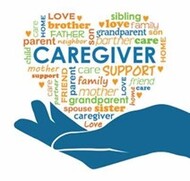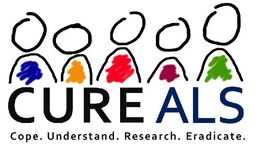PERSONAL CAREGIVERS
Before you take on the responsibilities of caregiving, make a promise to yourself:
“Even if it means someone else takes care of my loved one for a day, I will take time to take care of myself."
“Even if it means someone else takes care of my loved one for a day, I will take time to take care of myself."

A "personal caregiver" provides care for someone who means a lot to them and who has been diagnosed with ALS. Caregivers can be a spouse, children, other family members, and friends. Caregiving can be at-home, long-distance,or out-of-home. As the disease progresses, "caregiving" roles change.
See below for information on:
LEARNING ABOUT BEING AN ALS CAREGIVER
I AM ALS: With so much to learn plus the shock of diagnosis, it can feel like you’re lost in a foreign country without a map. Here's practical information to help you find your way: Caregivers - Start Here - I AM ALS Caring Bridge: A free online tool for sharing health updates. This is an easy and ad-free way to communicate health news to family and friends—all in one place.
The ALS Association provides a self-paced, at-home Caregiver Education Course. Click to register for this important course: Caregiver Education Course Enrollment | The ALS Association
The ALS Association's provides a quarterly e-newsletter, Care Matters with the latest information about ALS care, disease management, and resources to help you navigate your ALS journey. Sign Up for Care Matters | The ALS Association
HelpGuide: Shares great information on how to find support, overcome challenges, and make caregiving more rewarding for both you and the person you’re caring for.
BEING A LONG-DISTANCE CAREGIVER Long-Distance Caregiving can be a challenge. Here is some helpful information: AT-HOME CARE ASSISTANCE
ALTERNATIVES TO AT-HOME CARE
LEARNING ABOUT PALLIATIVE CARE AND HOSPICE
|
ASK FOR HELP!
People want to help!!! Don't hesitate to ask them -- they will thank you for it! ALS Care Connection is a service to support caregivers and people facing ALS. It helps to:
A FEW WAYS TO LET OTHERS LEND A HAND:
TAKE CARE OF YOURSELF.
KNOW WHEN YOU NEED HELP. The emotional side of caregiving The Emotional Side of Caregiving - Family Caregiver Alliance
Burnout: The everyday tasks you do for your loved one are often time-consuming and require a great deal of effort. If you don’t learn to recognize that certain responsibilities and expectations can take their toll on you, regardless of whether you’re doing them out of love, you may find yourself headed down the path of burnout.
The ALS Association answers these very important questions:
Respite care: There are times when you will need a reprieve from the routine care you provide to your loved one. The ALS Association talks about asking for and receiving respite care. Respite Care | The ALS Association |

